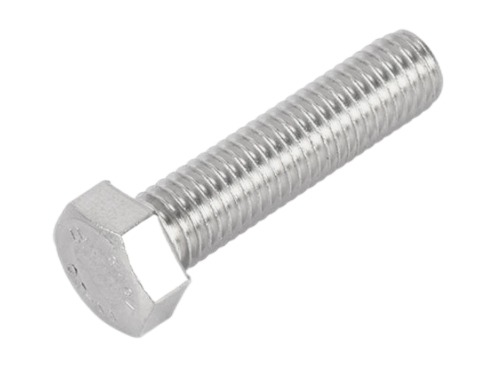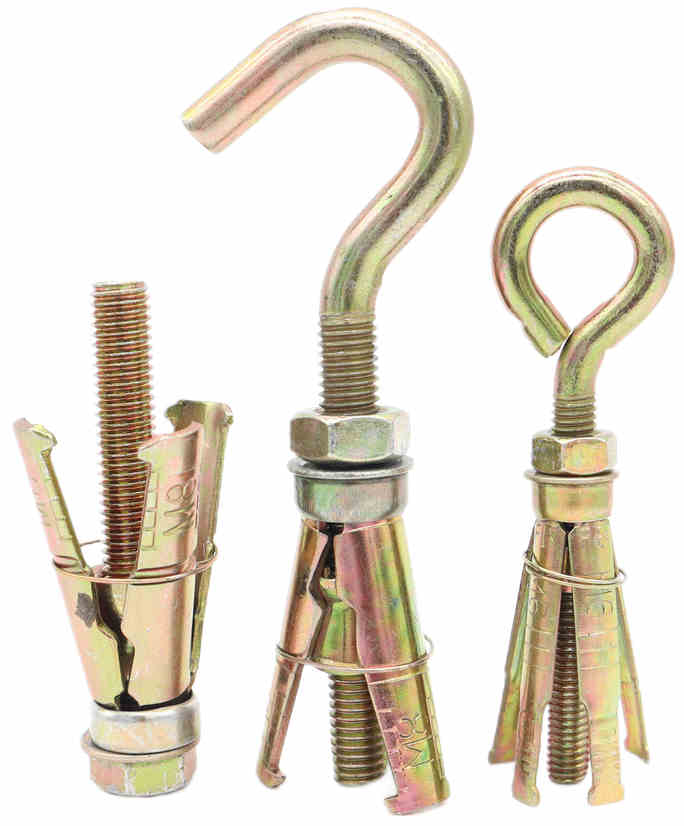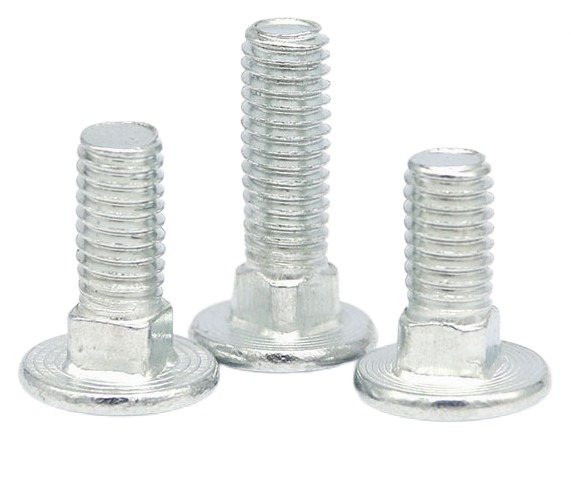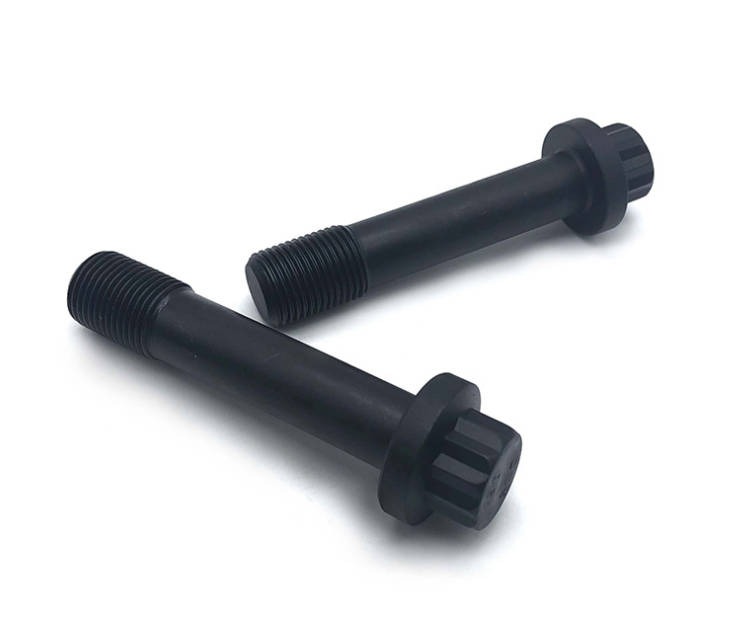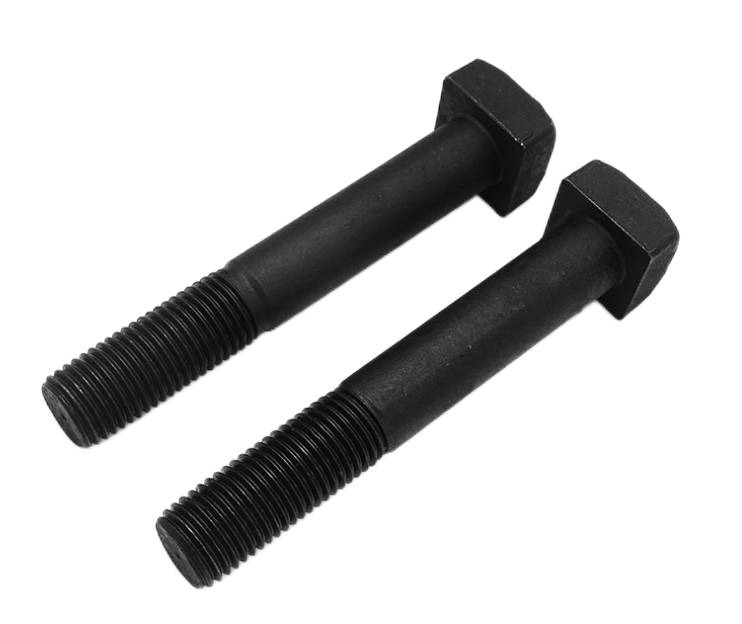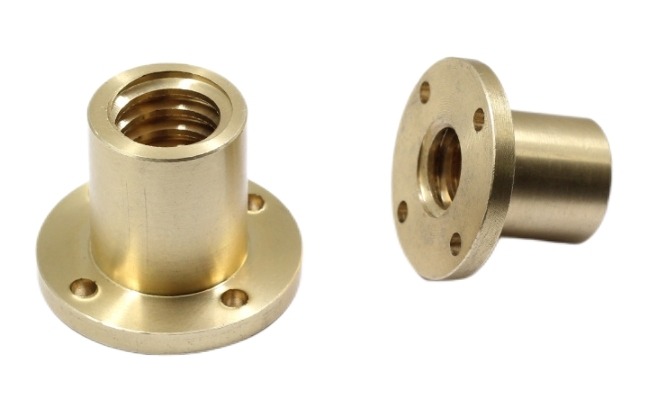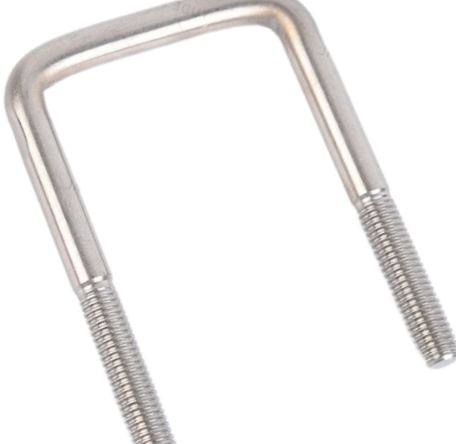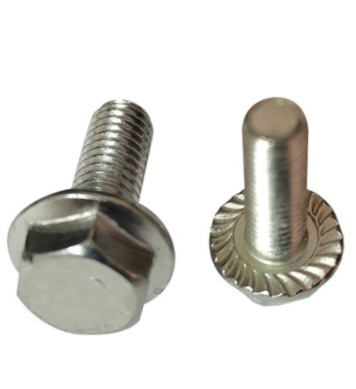Why Galvanized Bolts Rust: Factors Causing Rust And Solutions
Galvanized bolts are a common alternative for rust and corrosion protection in fastening applications. They are bolts with the surface treatments of hot-dip galvanized or electroplating which acts as a protective barrier. Galvanized bolts, despite their protective coating, can corrode under certain conditions. In this post, we will look at the variables that can cause galvanized bolts to rust.

What Are The Galvanized Bolts?
Galvanized bolts are typically made of steel that has been zinc-coated to provide a protective barrier against rust and corrosion. The zinc coating functions as a sacrificial layer, corroding before the steel beneath it, shielding the steel from direct contact with moisture and oxygen in the environment.

What Are The Factors Causing Rusting Of Galvanized Bolts?
- Damage to the Zinc Coating
The zinc coating on galvanized bolts can lose its effectiveness if it is scratched, chipped, or otherwise damaged. Even minor damage can expose the underlying steel to moisture and oxygen, allowing rust to grow. Mishandling during installation, shipping, or storage, as well as contact with abrasive surfaces or instruments, are common causes of zinc coating deterioration.
If a galvanized bolt is dropped against a hard surface during installation or struck by a hammer, the zinc covering may chip or break, exposing the steel beneath to the elements. Similarly, if galvanized bolts are poorly stored, such as with other metal items or in a corrosive environment, they may suffer mechanical damage or chemical exposure, which might jeopardize the zinc coating’s integrity.
Solutions
To reduce the possibility of zinc coating corrosion, galvanized bolts should be handled with care during installation and storage. Dropping or striking galvanized bolts against hard surfaces is not recommended, and they should be stored in a dry, well-ventilated place away from corrosive substances. If the zinc coating on a galvanized bolt becomes broken, it is critical to repair or replace the bolt to provide continuing rust prevention.
- Exposure to Harsh Environments
While galvanized bolts are supposed to be corrosion resistant in normal climatic conditions, prolonged exposure to hostile environments can hasten the breakdown of the zinc coating, leaving the steel exposed to rusting. Exposure to highly corrosive chemicals, seawater, acidic conditions, or locations with significant amounts of pollution or industrial emissions are examples of harsh environments.
If galvanized bolts are used in marine industry where they are frequently exposed to saltwater, the high salt content can quickly dissolve the zinc coating, resulting in rust formation on the steel surface. Similarly, in industrial areas with significant pollution or emissions, the acidic or corrosive nature of the air or chemicals can damage the zinc coating, making the steel rust-prone.
Solutions
To minimize the effects of harsh environments on galvanized bolts, it’s important to choose the appropriate type of galvanized coating that is specifically designed for the intended environment. For example, hot-dip galvanizing with a thicker coating of zinc may be more suitable for marine environments compared to electroplating with a thinner coating. Regular inspection and maintenance of galvanized bolts in harsh environments are also crucial to identify any signs of damage or corrosion and take appropriate actions, such as cleaning or recoating, to prevent rust formation.

- Dissimilar Metal Contact
Another factor contributing to galvanized bolts’ rust is dissimilar metal contact. When galvanized bolts come into direct contact with other metals, particularly those with different electrode potentials, it can create an electrochemical reaction that accelerates the corrosion of the zinc coating.
Dissimilar metal contact is another reason that might contribute to galvanized bolt corrosion. When galvanized bolts come into direct contact with other metals, especially those with different electrode potentials, an electrochemical reaction can occur, accelerating the corrosion of the zinc coating.
Solutions
It is critical to utilize appropriate materials in bolted connections to avoid dissimilar metal contact and minimize galvanic corrosion. If different metals must be used together, proper precautions should be taken to keep them from coming into direct contact. This is accomplished by using insulating gaskets, plastic or rubber washers, or other types of isolators to prevent direct contact between galvanized bolts and dissimilar metals.
- Improper Installation
Improper installation practices can also contribute to galvanized bolt rusting. For example, overtightening bolts during installation can cause the zinc coating to crack or flake, exposing the steel to moisture and oxygen. Similarly, if bolts are fitted in such a way that moisture or debris is trapped between the bolt and the mating surface, it might produce an environment favourable to rust formation.
Solutions
To prevent the improper installation from affecting the performance of galvanized bolts, it’s important to follow recommended installation practices and torque specifications provided by the manufacturer or industry standards. Avoid over-tightening bolts, as it can damage the zinc coating, and ensure that the mating surfaces are clean and free from moisture and debris before installing the bolts.
- Chloride Contamination
Another issue that can lead to galvanized bolt rusting is chloride pollution. Chlorides are very corrosive to zinc and can accelerate the corrosion of the zinc coating on galvanized bolts. Chlorides are typically found in saltwater, deicing salts, and some industrial settings.
When galvanized bolts are exposed to chloride-contaminated surroundings, the chloride ions can penetrate the zinc coating and reach the steel surface, where they can start rusting. This can be especially problematic in coastal areas or regions that utilize a lot of deicing salts during the winter.
Solutions
To keep chloride contamination from impacting the performance of galvanized bolts, use coatings that are specifically intended for chloride-rich settings. Galvanized bolts, for example, with thicker zinc coatings or other protective coatings, such as organic or inorganic topcoats, may be more successful at preventing chloride-induced corrosion. Regular examination and maintenance of galvanized bolts in chloride-contaminated settings are also required to detect any signs of damage or corrosion and take suitable measures to prevent rust formation.

Summary
While galvanized bolts are generally corrosion resistant, it is critical to be aware of the conditions that can lead to rusting and implement suitable preventive measures.

